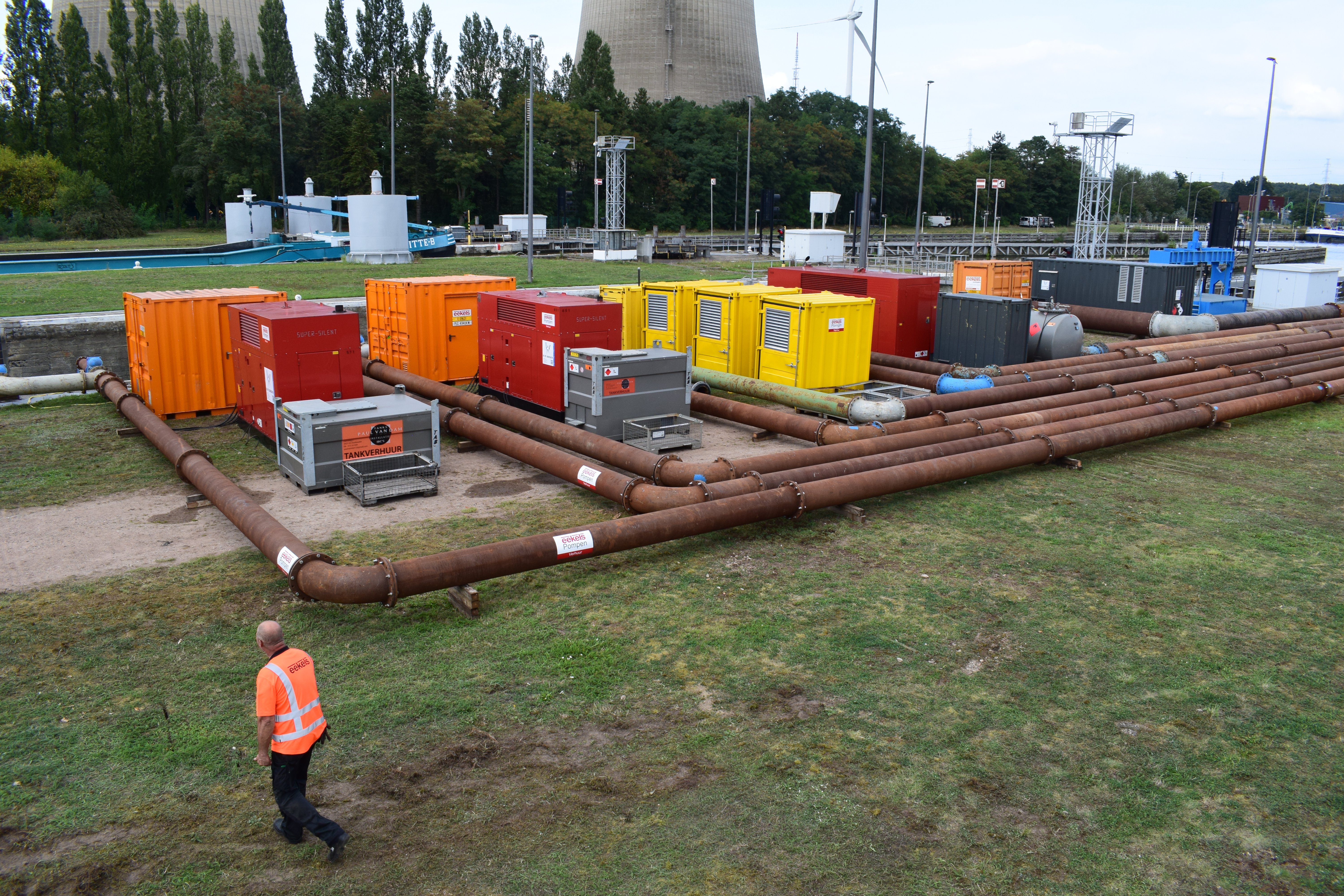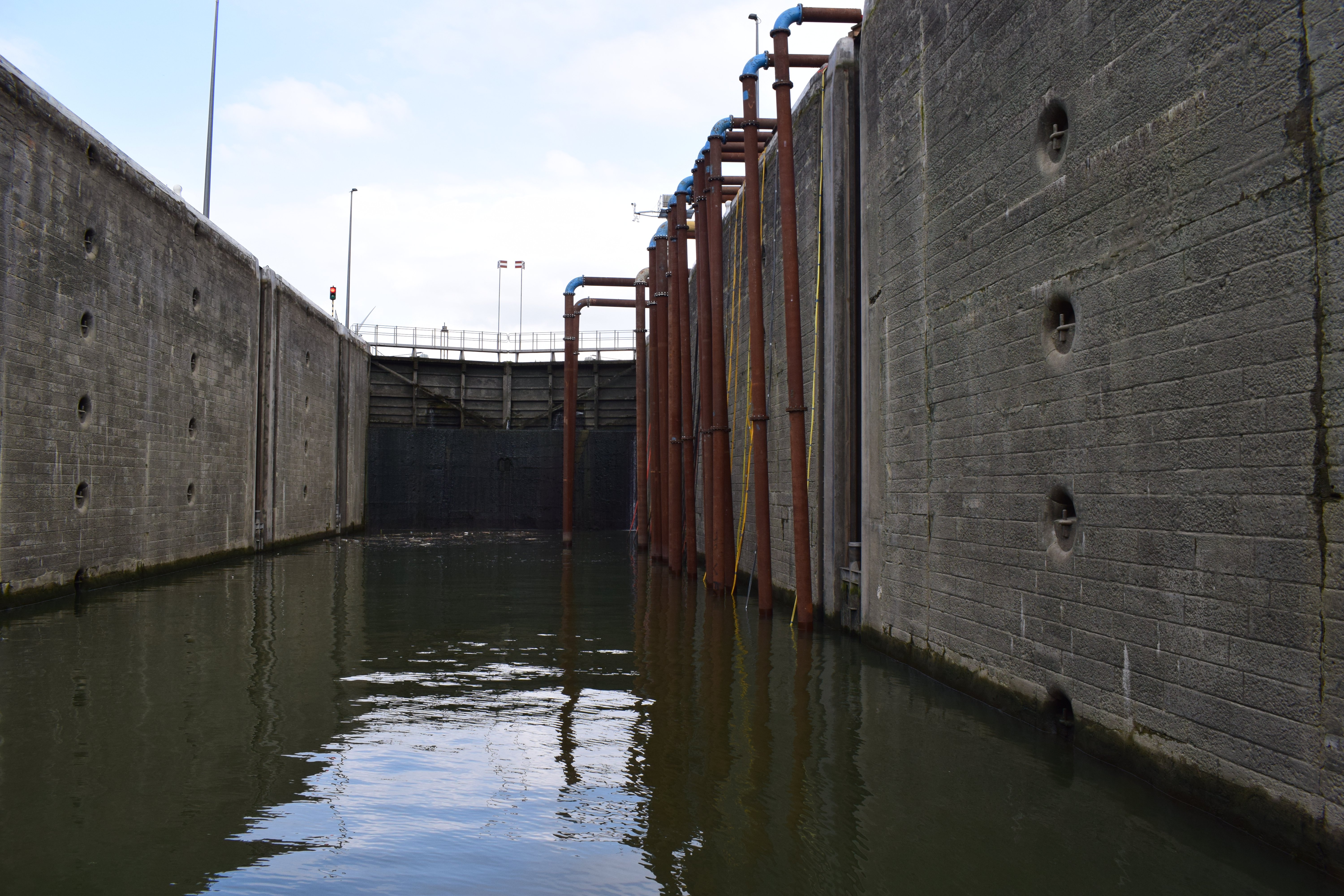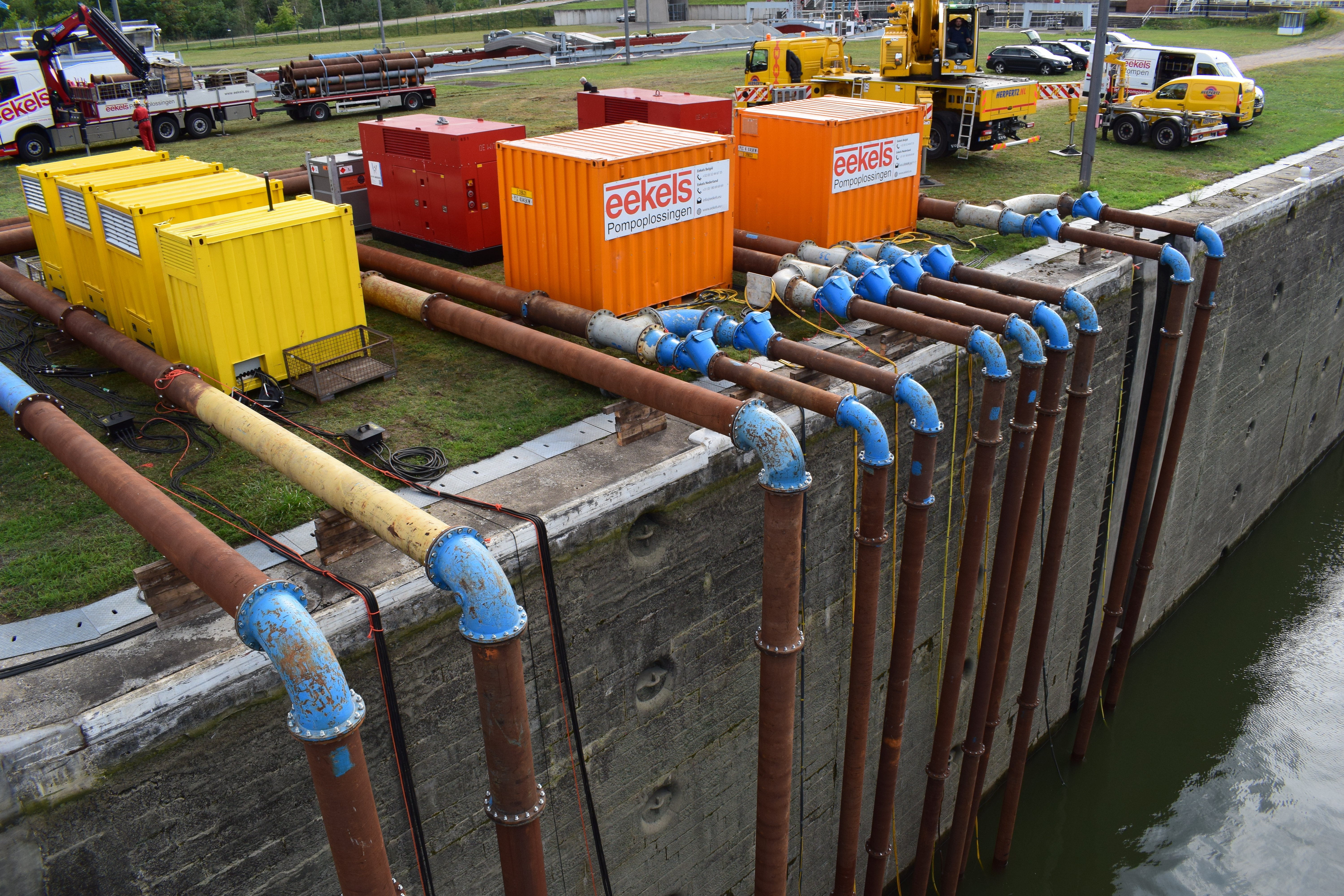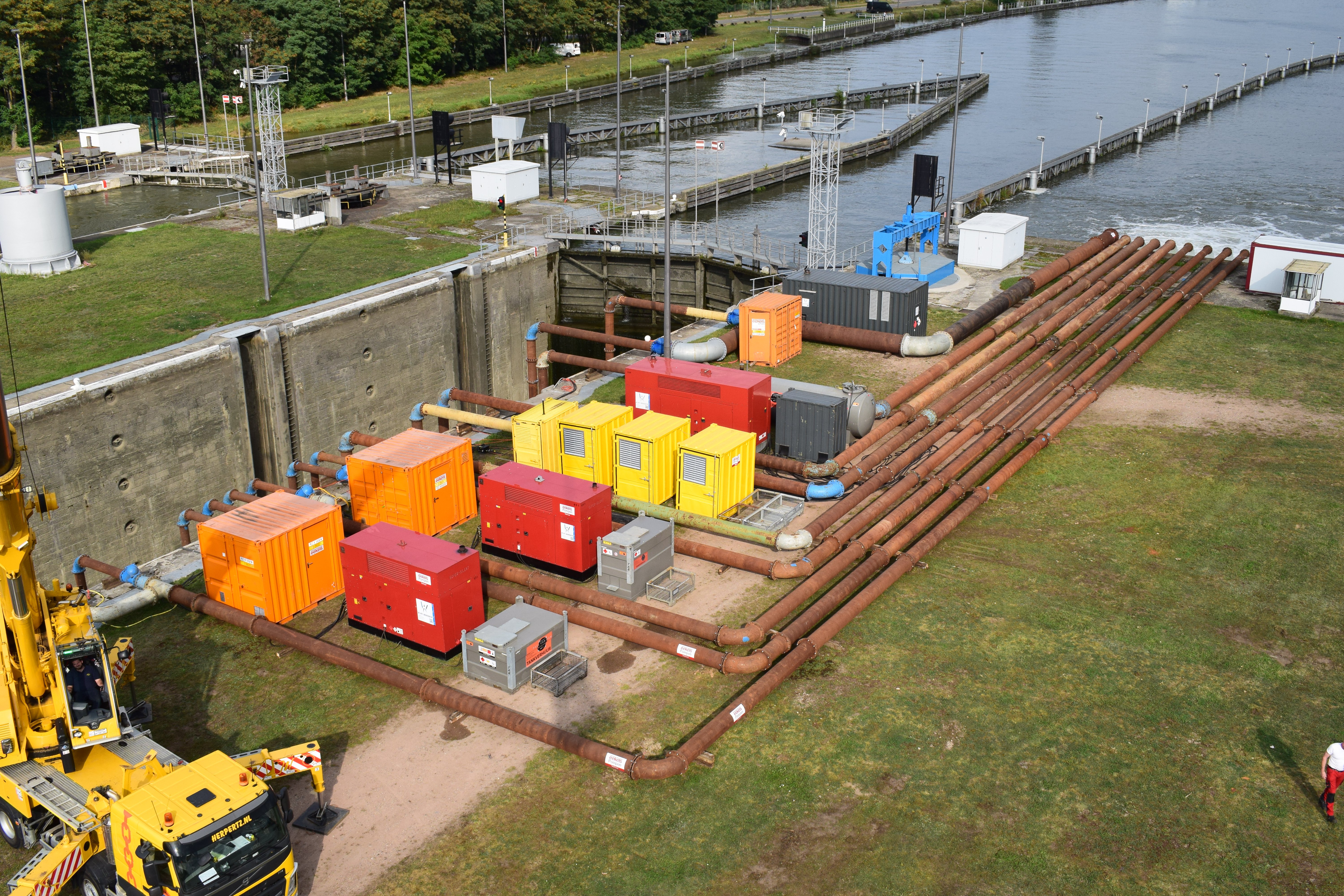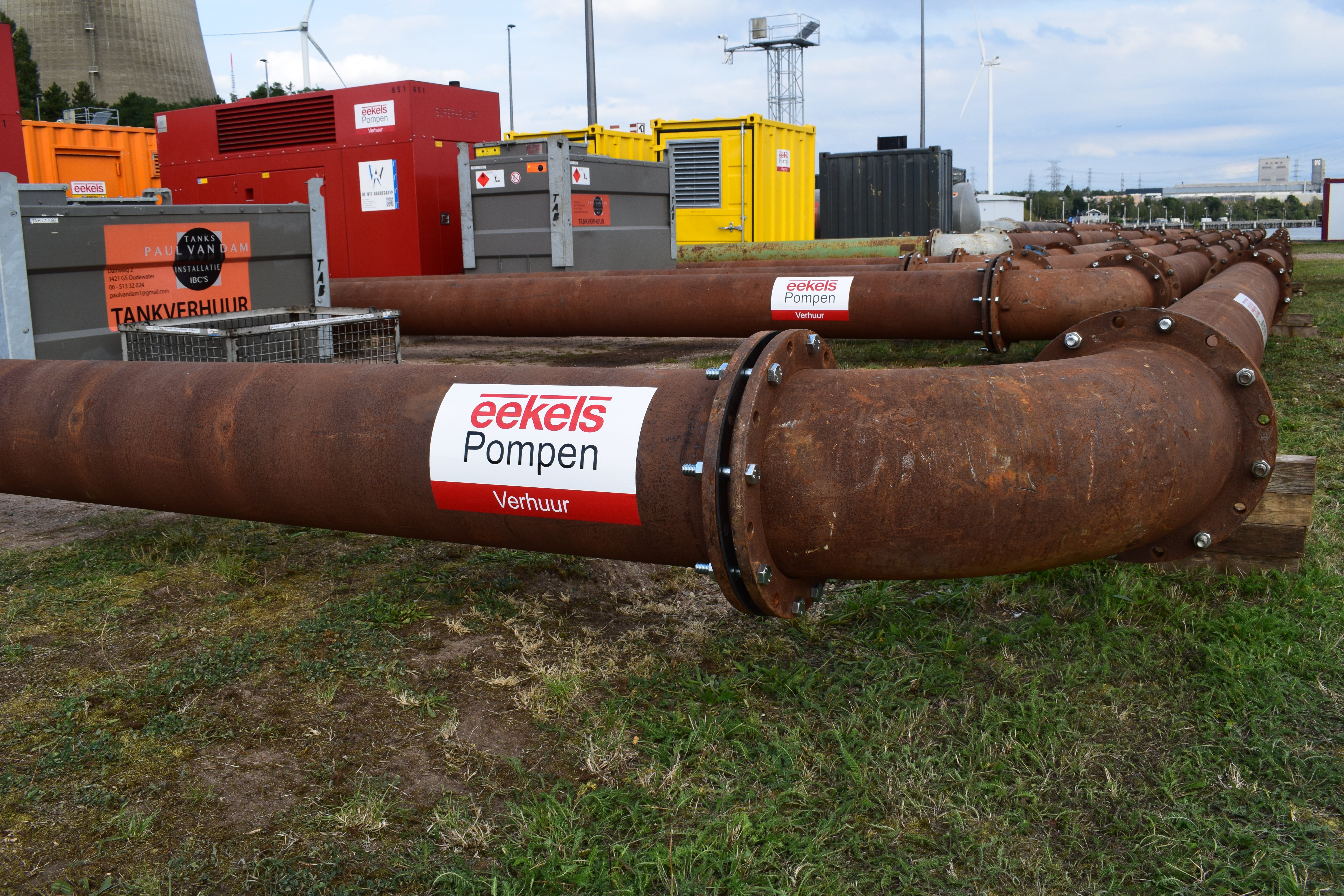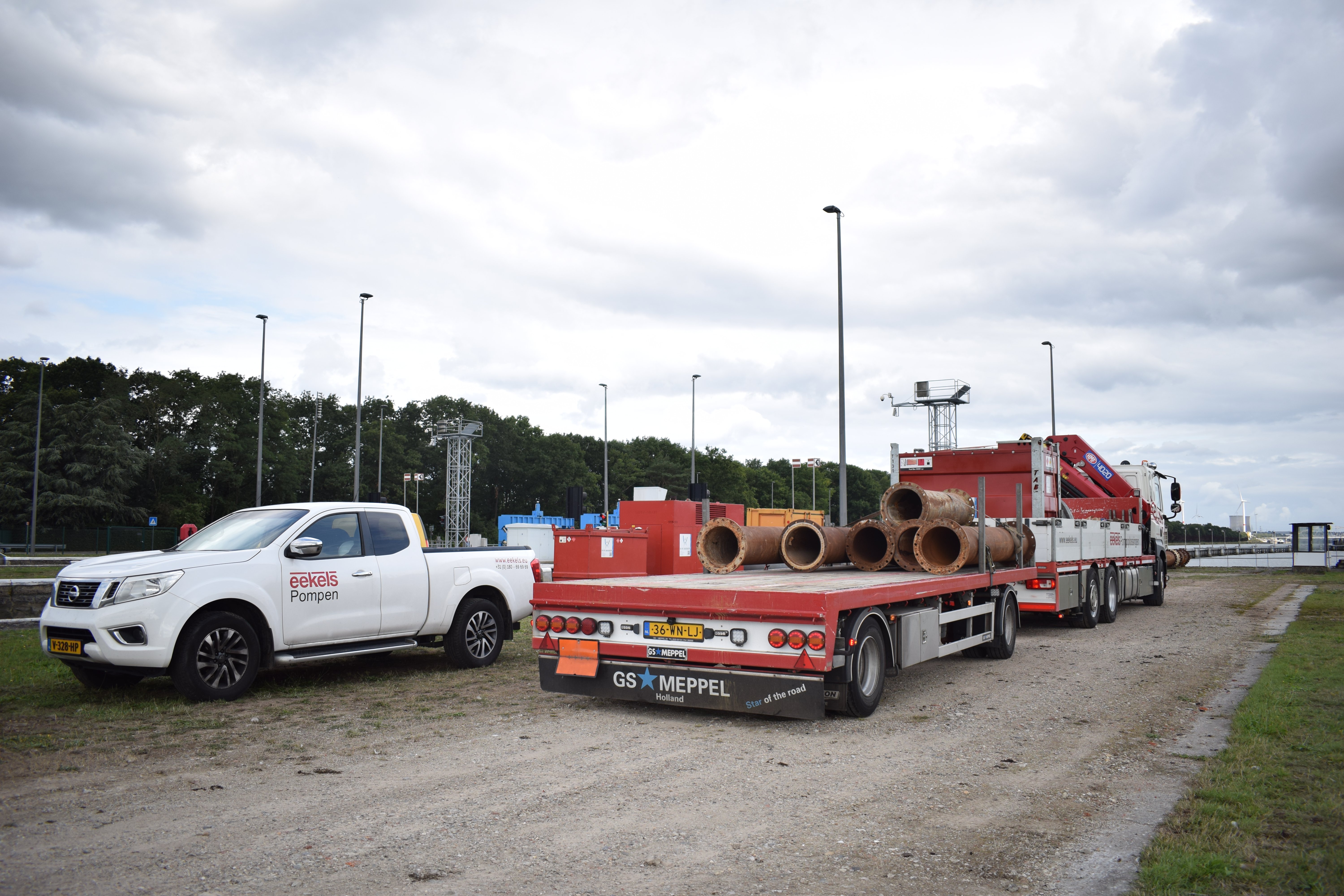Emergency jobs: Temporary pump systems due to low levels in the river Meuse
Due to persistently dry conditions, the flow of water in the navigable waterways in Flanders and the Netherlands has been decreasing consistently since the spring. Regular heavy rainfall in recent weeks has brought some short-lived solace, but the water flow in the Meuse is currently at a record low. This has led to a number of problems for shipping in Flanders and the Netherlands.
The average water flow via the Meuse is 250 m3/s. The persistently dry conditions in recent months have resulted in an exceptionally low flow in the Meuse of only 35 m3/s at the moment.
This extremely low rate of flow in the Meuse ultimately affects an area much larger than the river itself. The Albertkanaal and the canals in the Campine region of Flanders are fed with water from the Meuse, as are the Julianakanaal and a number of other canals in the south of the Netherlands. In addition to its function for shipping, the water in these waterways is also used as drinking water, for energy generation, as process water for industry and as irrigation water for agriculture and for nature reserves.
Temporary pump systems on the Albertkanaal
A great deal of water is lost when ships pass through lock systems. That is why the specialists from Eekels installed heavy-duty temporary pump systems at several sluices along the Albertkanaal. These installations make it possible to continuously pump large quantities of water from the downstream side back to the upstream side. Each pump system consists of large submersible pumps, steel pipes and dedicated power supplies.
